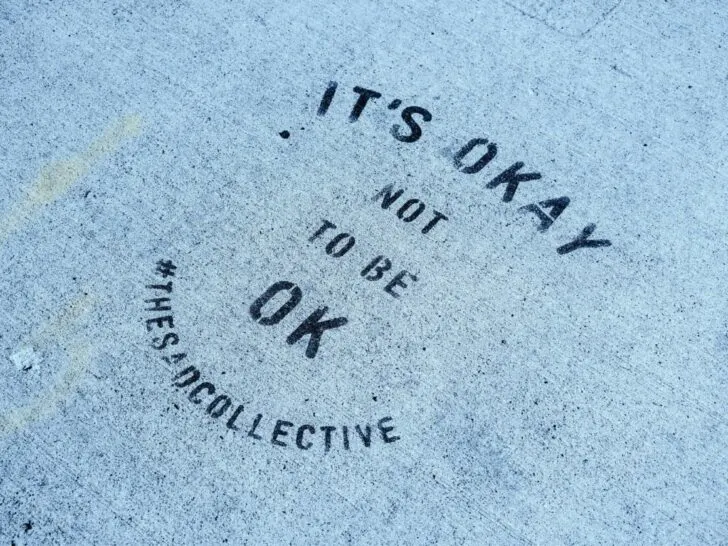Depending on the context they allude to and how they are used in a phrase, words can have several meanings. Some words have similar appearances but have different meanings.
A thesaurus can occasionally assist you in identifying words with similar meanings, but it is useless if the speaker’s intents are different from the terms’ meanings.
The words “Okay” and “OK” actually imply the same thing and denote acceptance. While “Ok” is its abbreviation or shorter form, “Okay” is more frequently required in formal written documents.
Although the word “okey” by itself has no meaning, it is a component of the expressions “okey-dokey” and “okey-doke,” which are different ways of saying “okay.”
Keep reading to know more about the different ways in which one can say okay, along with the differences and similarities between them.
What Is Okay?

Okay is a word that shows approval in a formal manner. The name originated in the late 1830s when speaking in abbreviations rather than full words became commonplace.
Depending on the context of the conversation, responding to a short or long text with “okay” can be perceived as disrespectful or dismissive by the person you are speaking to. Sometimes you’re asked to do more than just acknowledge something.
Since ‘Okay’ appears to be more casual in front of yes and may typically be used in between talks with friends, individuals frequently substitute it for yes.
Let’s look at some examples of ‘Okay’ being used in a sentence.
- Is he okay?
- It’s okay to be afraid of heights.
What Is Ok?
The English word “ok” can be used to express agreement, acceptance, consent, recognition, or apathy.
The term “ok” is frequently borrowed into various languages. It has been referred to as the term that is used the most on earth, both orally and in writing.
The abbreviation “OK” is used to shorten the word “okay,” and for some people, it indicates a furious or angry response to an agreement.
Ok is also short-formed to ‘K’ when one is in a hurry or wants to show the other person a sign of avoidance or irritation.
Let’s look at some examples of ‘Ok’ being used in a sentence:
- We’ll be ok.
- You don’t need to panic, ok?
What Is Okey?
Okey, according to the majority of dictionaries, is an incorrect spelling or pronunciation of alright. Okey is mentioned in another as an older English spelling, but given that it dates the word to the 1800s, I’m not sure how much I accept it.
I discovered slang that uses “okey” as a shortening of the popular 1920s phrase “okey-dokey,” which is now only used by kids or people who have juvenile ideas.
Okey can also refer to ice cream in Leicestershire, a real city in the United Kingdom.
Okey, a four-player game based on tiles and winning with the fewest points, is also discovered to be popular in Turkey.
For online accounts, Oklahoma State University has filed the trademark O-key. It is based on Oklahoma’s moniker, Okey’s or Okie’s.
It first appeared as a derisive epithet for Oklahomans who left the state during the Great Depression of the 1930s. Nowadays, saying it is enjoyable, and Oklahomans take pleasure in the distinction. Merle Haggard once wrote a song about growing up in Muskogee, Oklahoma.
Difference Between “Okay,” “Okey,” And “Ok”

Technically, “Okay” is the one that is a correct word. “OK” is used to shorten okay and can occasionally be read as a strong or severe reaction. However, “okey” is not a word. It presumably began as a typo that everyone adopted or occasionally used informally.
In the UK, it is usual to say “okay,” yet when we hear it, it may just be a colloquialism or a baby-talking person. Use “oki oki” instead of phrases like “okay okay” or “ok ok,” for example.
Some states in America use the words “okay” and “okey.” Since the majority of my pals are from New York, they usually just say “ok” instead of “okay.”
Certain style manuals prefer one over the other. Others are quiet about the subject. The Chicago Manual of Style (CMOS), for instance, doesn’t state which phrase it favors.
However, it utilizes OK within its own content. On their website, CMOS responds to a query by stating that okay “is an equal variant (also standard).” The Associated Press Stylebook, in contrast, mandates OK, even in phrases like OK’ing.
Ok And Okay Are The Same
There are two acceptable ways to spell the word okay: ok and okay. When writing in a formal context, adhere to the guidelines in your style guide.
You already know the answers to the inquiries. There is no difference between OK and okay. It’s possible that the previous term OK began as an abbreviation for the purposeful misspelling of “all correct.”
Both words are accepted English slang. Always refer to the appropriate style guide when writing something excessively formal. You might choose to use a synonym if you don’t have one.
For instance, “OK! Why are you holding out? You need to finish this statement!“
Words To Use Instead Of Okay, Ok, And Okey
Yes
Yes is a sign that you concur with, acknowledge, or comprehend what the speaker before you has said.

The word “yes” is quite old. It came into English before the year 900 and is derived from the Old English word geese, which broadly translates to “be it.”
Yea was the all-purpose way to say “yes” before the 1600s. Yes was sometimes only used as an affirmative to a negative query.
It is difficult to categorize the words yes and no into any of the eight traditional parts of speech. Although they do not meet the criteria for interjections and they are not adverbs, they are sometimes categorized as such.
Agreed

“It is accepted” is what is meant in this context by “agreed”. The verb form is agreed. When you use a verb by itself, you are giving someone instructions to do something.
Therefore, if you just say “agree,” you are telling the other person to join you in your position.
The word accord, whose Old English meaning was “to reconcile” or “to bring into an agreement,” was derived from the Anglo-French acorder, which is connected to the Latin word concordance and means “to agree.”
Conclusion
- Okay and OK (pronounced “oh-kay”) are both valid grammatical constructions that can be used interchangeably. There are no significant distinctions between who uses what word, unlike other words that may depend on regional differences.
- There is no distinction between American and British English; everything comes down to personal taste or preference. The word okay is rather simple to utilize. However, if you write ok to a friend, it’s entirely OK. If OK is your preferred form, it should be capitalized.
- It’s important to note that the usage of alright and OK is both fairly informal. This means that you might wish to completely avoid using okay or okay while writing a paper or another formal article. You can change it to all right, good, or even fine.
- Okey is a totally informal word that is frequently used by youngsters in the course of useless conversations. Many people, including many English language specialists, disagree that the word “okey” exists. People may also refer to it as a made-up word.

